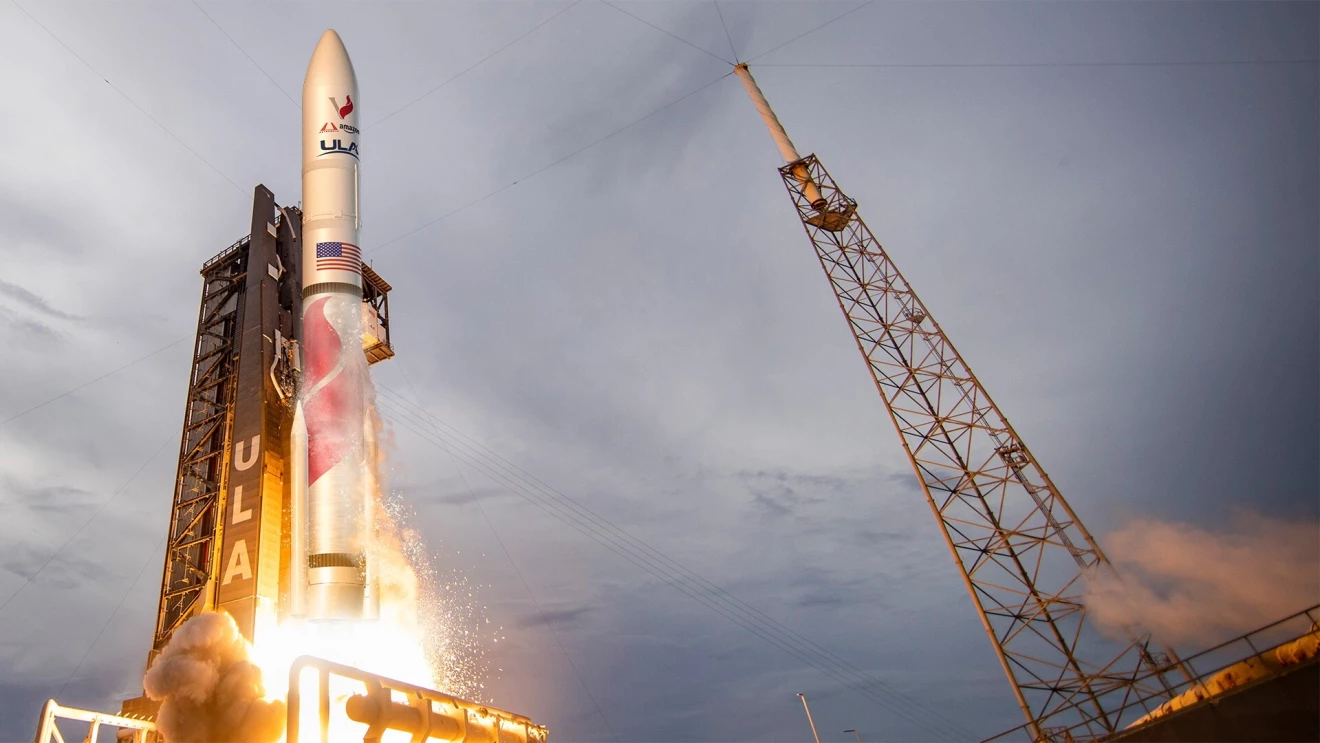Here’s how Amazon will challenge SpaceX’s Starlink

Ready to take off in 2023 the Kuiper project, Amazon's plan to build a network of 3,236 satellites in low earth orbit, to provide high-speed Internet anywhere in the world
Amazon ready to launch the first two Project Kuiper satellites, prototypes for the tech giant's broadband satellite program, will head into Low Earth Orbit (LEO) in the first quarter of 2023.
And to do so, the company has also changed the carrier. A year ago, Amazon announced that the prototypes would be launched on an ABL Space Systems rocket by the end of this year. But if the tech giant keeps its launches with ABL, Project Kuiper will debut entirely with another supplier: its first two satellites will fly on the maiden flight of the new Vulcan Centaur rocket of the United Launch Alliance, a joint venture formed by Boeing and Lockheed Martin.
The United Launch Alliance (ULA) announced Wednesday that it will carry two Project Kuiper satellite prototypes into orbit during the maiden voyage of its new Vulcan Centaur launch vehicle in early 2023.
The Kuiper project has the authorization to launch 3,236 satellites to form a constellation intended to provide Internet access even in remote locations. The company has pledged to invest $ 10 billion in the project, with the goal of catching up with SpaceX's rapidly growing Starlink network, which already offers Internet services to thousands of customers in dozens of countries.
As The Post notes, Amazon will have to distribute half of that number by 2026 to meet its obligations with the US FCC.
All the details.
CHANGE OF VECTORS FOR THE FIRST SATELLITES
Amazon is moving its Kuipersat-1 and Kuipersat-2 from the RS1 rocket in development by ABL Space to the debut flight of the United Launch Alliance's Vulcan rocket. A year ago, Amazon announced that ABL's RS1 would take the prototypes into orbit at the end of 2022, but the rocket is still in development, with a debut launch still not taken off.
AMAZON KUIPER READY TO CHALLENGE SPACEX'S STARLINK
The Kuiper project is Amazon's plan to build a network of 3,236 satellites in low earth orbit, to deliver high-speed Internet anywhere in the world. The Federal Communications Commission in 2020 cleared Amazon's system, which the company said it "will invest more than $ 10 billion" to build.
Earlier this year, the tech giant founded by Jeff Bezos announced what it claims to be the largest missile deal in the history of the commercial space industry. Amazon has signed agreements with three companies for a maximum of 83 launches to bring the satellites of the Kuiper constellation into orbit. The goal of the satellite network is to bring internet connections to areas currently without connections.
Specifically, the Seattle group has signed with the European Arianespace, Blue Origin (founded by Jeff Bezos), and United Launch Alliance (Ula), a joint venture between Lockheed Martin and Boeing.
WILL IT REACH SPACEX STARLINK?
But catching up with rival Starlink won't be easy.
To date, SpaceX has more than 3,200 Starlink satellites in orbit , covering 25 countries and over 145,000 users worldwide. These satellites guarantee access to the internet globally regardless of terrestrial connections. To connect, people need a specific Starlink terminal, a sort of router that receives data sent by satellites, different from traditional signals from ground stations.
In May, SpaceX told the FCC that Starlink had more than 400,000 subscribers. Among these, many pay $ 110 a month for broadband Internet using $ 599 self-installing terminal kits.
Furthermore, Kuiper is not only competing with Starlink for consumer and enterprise subscribers, but also with OneWeb, a subsidiary of the British government , which has almost finished launching its first generation of satellites. OneWeb already has two thirds of the satellites in orbit: 428 of the 648 planned satellites.
This is a machine translation from Italian language of a post published on Start Magazine at the URL https://www.startmag.it/innovazione/ecco-come-amazon-sfidera-starlink-di-spacex/ on Fri, 14 Oct 2022 05:14:06 +0000.
